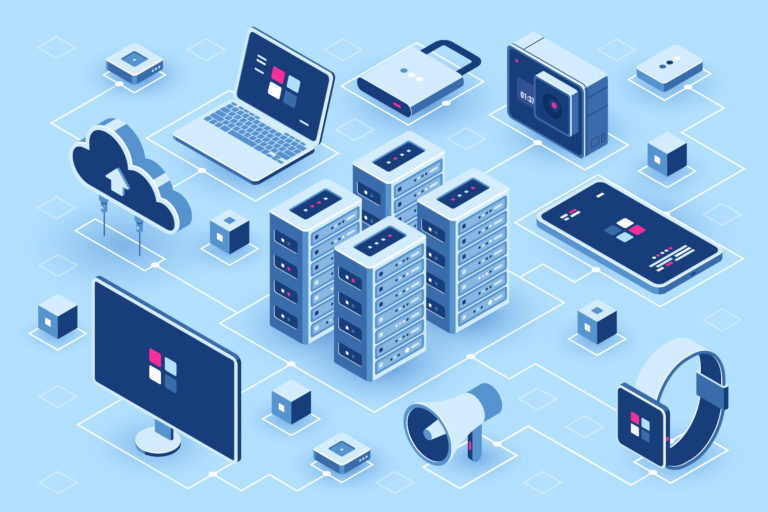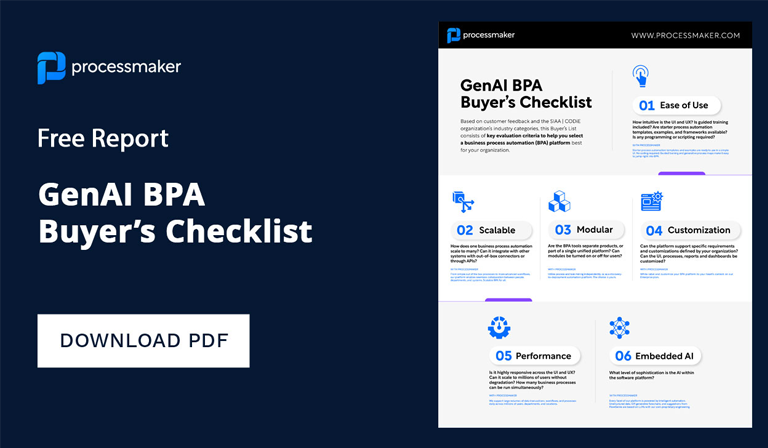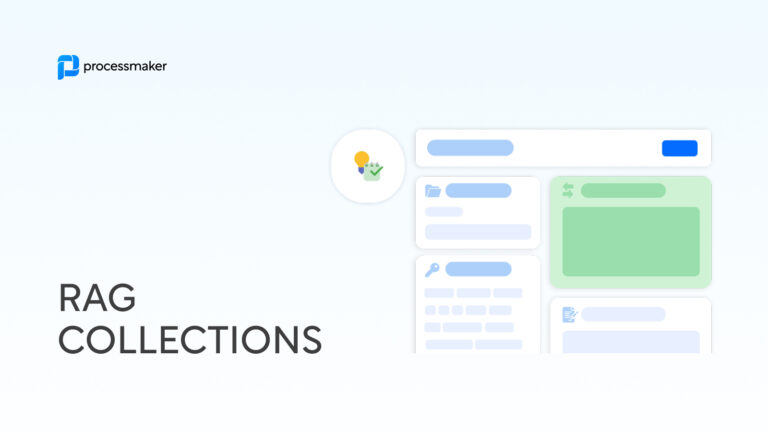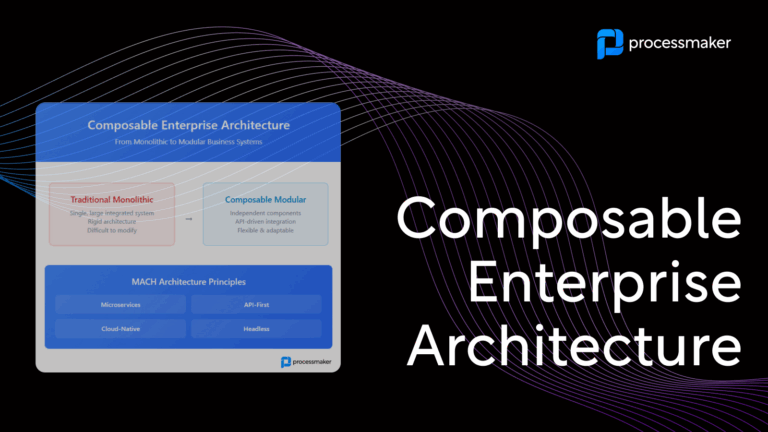Traditionally, automation platforms have been built to run on virtual machines (VMs) and desktops.
However, the next generation of automation platforms are cloud-based. These intelligent automation solutions enable businesses to automate time-consuming, repetitive, manual tasks from document processing to email responses and even system updates. Many organizations have already embraced cloud-based applications such as Office 365 and Salesforce. As a result, a cloud-based process automation platform should feel familiar.
This article will explore the advantages of using a cloud-based automation platform, and how it accelerate company-wide digital transformation.
What is cloud-based process automation?
Cloud computing has become an inevitable business component, and soon, cloud automation will be in the same position. Using cloud-based tools, automation extends to the software layer and can be configured and rolled out when and where needed. The load between compute, network, or storage resources to bring systems online or offline is balanced by intelligence. Cloud automation answers the need to use advanced cloud management tools for handling increasingly complex data.
Cloud automation helps to automate repetitive tasks and manual operations such as syncing files, processing applications, onboarding new clients, routing documents, and more.
Deploying your automation to the cloud offers the same features as on-premise automation, except with several vital advantages:
Lower IT cloud infrastructure costs
In the wake of the COVID-19 pandemic, many organizations have transitioned towards an entirely remote workforce. As a result, savings are made around office space and related structural costs.
Further, companies can quickly start a business using cloud services, eliminating large upfront investments in brick-and-mortar spaces. APIs then offer easy integration between necessary apps. For example, you can integrate chatbots with customer-facing systems. These integrations can be scaled up or down depending on spikes in traffic.
Hence running automation on cloud-based platforms results in cost savings on buying and maintaining hardware and multiple software licenses. There isn’t any question that hardware costs are expensive, but there are additional expenses of human resources to install, implement, secure, manage, maintain, and upgrade the hardware. In terms of TCO, cloud automation is the economical option.
Centralized process automation management
Having a centralized environment enables the organization to have more effective control over the organization and audits of automation activity. You can also manage access rights and permissions from a centralized system based on a group, user, data, and object levels.
Popular cloud-based automation platforms include:
- UIPath
- Nutanix
- Automation Anywhere
- Cloud-based iBMPS ProcessMaker
ProcessMaker can also leverage RPA bots, like Automation Anywhere, within it’s intelligent business process management software to enable complete end-to-end automation.
Faster automation deployment to the cloud
Cloud automation takes only days to design and deploy business processes where it can take months with an on-premise solution. On-premise is no match for cloud automation deployment. Any new customer can set up cloud automation immediately: log-in to your centralized hub and begin designing and building your automated processes. The configuration is both cost-effective and low-risk.
Keep stakeholders in the loop across borders
Business processes may involve employees, and they may also include customers, partners, contractors, job candidates, vendors, and more. By utilizing cloud automation, these stakeholders can participate in the workflows without having to sit within your business walls.
Automate work from anywhere
Older iterations of process automation platforms can only be installed on desktops. With cloud automation, all you need is a web browser. What this means is you get a platform that works on any device and from anywhere. In the remote-working environment, your employees can access cloud automation regardless of their location or device.
Reliability and uptime guarantee with the cloud
As a cloud platform, new updates and features are released more quickly. Other advantages include continuous monitoring, backup and recovery, and assurance you are always on the latest and most secure version.
Scaling process automation on demand
A massive bonus of a cloud-based process automation platform is the ability to scale on demand. In fact, with low-code, ProcessMaker can scale processes as they become more problematic as it also allows for complexity while automating low-value tasks. There is no need to worry about hard drive space, and more time is spent focusing on higher-value tasks such as improving the customer experience and product development. ProcessMaker’s centralized management can provide a frictionless environment to minimize manual effort.
Optimized storage and file sharing in the cloud
The cloud offers the convenience of data storage with 94% of businesses seeing an improvement in security after moving to the cloud. Unquestionably, cloud automation operates similarly. You don’t need any technical knowledge to work on cloud automation platforms either.
In conclusion
Cloud automation is the future, and companies are starting to realize its significance in the business environment. Additionally, cloud automation gives organizations a competitive edge today but will soon become necessary in the future.
To attain success in your digital transformation journey, deploy a cloud automation solution that is quick to set up, cost-effective, offers seamless integration, and designed to scale.





